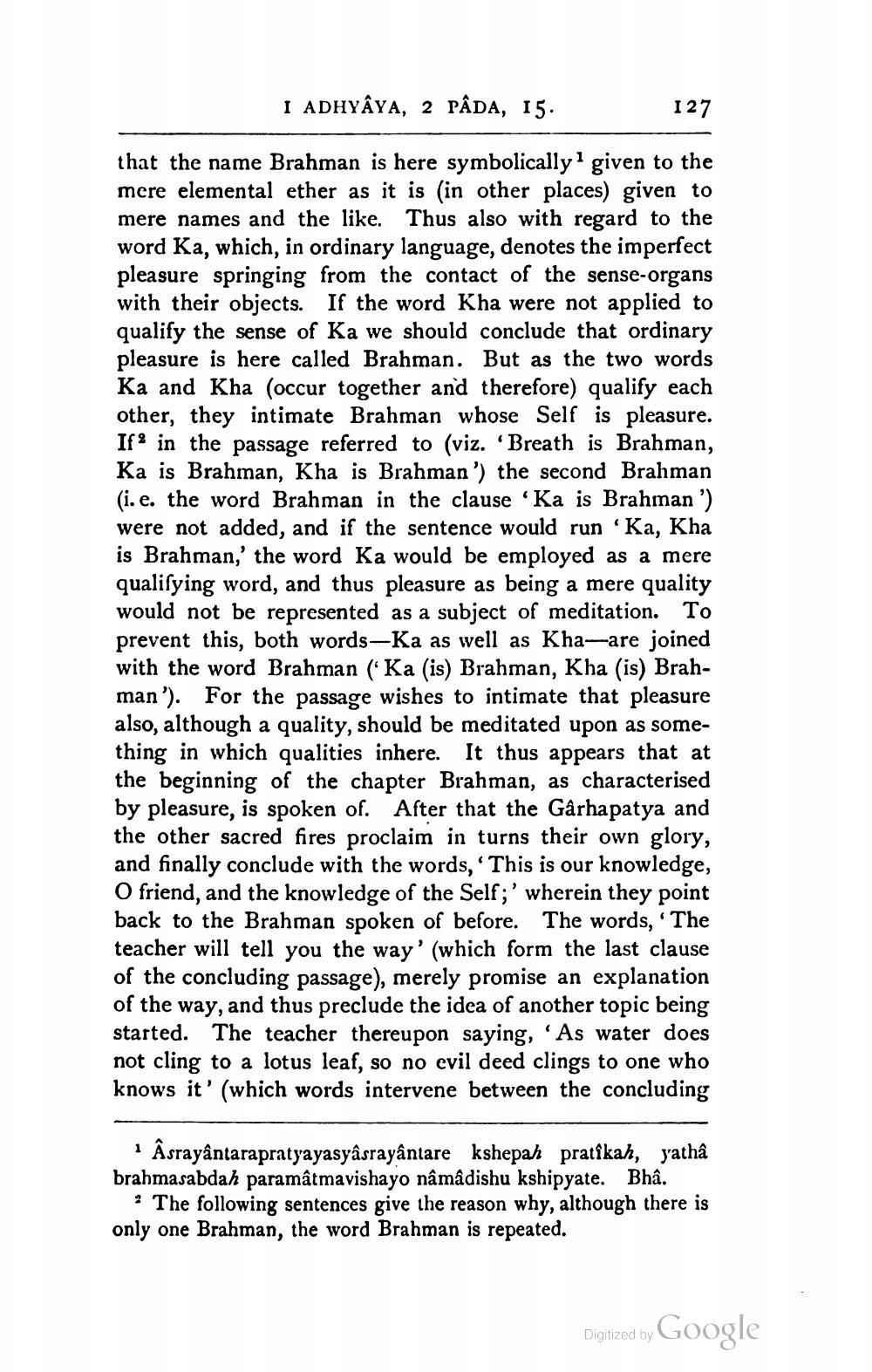________________
I ADHYAYA, 2 PÂDA, 15.
127
that the name Brahman is here symbolically given to the mere elemental ether as it is (in other places) given to mere names and the like. Thus also with regard to the word Ka, which, in ordinary language, denotes the imperfect pleasure springing from the contact of the sense-organs with their objects. If the word Kha were not applied to qualify the sense of Ka we should conclude that ordinary pleasure is here called Brahman. But as the two words Ka and Kha (occur together and therefore) qualify each other, they intimate Brahman whose Self is pleasure. If? in the passage referred to (viz. 'Breath is Brahman, Ka is Brahman, Kha is Brahman') the second Brahman (i.e. the word Brahman in the clause Ka is Brahman') were not added, and if the sentence would run Ka, Kha is Brahman,' the word Ka would be employed as a mere qualifying word, and thus pleasure as being a mere quality would not be represented as a subject of meditation. To prevent this, both words-Ka as well as Kha-are joined with the word Brahman (Ka (is) Brahman, Kha (is) Brahman'). For the passage wishes to intimate that pleasure also, although a quality, should be meditated upon as something in which qualities inhere. It thus appears that at the beginning of the chapter Brahman, as characterised by pleasure, is spoken of. After that the Gârhapatya and the other sacred fires proclaim in turns their own glory, and finally conclude with the words, 'This is our knowledge, O friend, and the knowledge of the Self;' wherein they point back to the Brahman spoken of before. The words, 'The teacher will tell you the way' (which form the last clause of the concluding passage), merely promise an explanation of the way, and thus preclude the idea of another topic being started. The teacher thereupon saying, 'As water does not cling to a lotus leaf, so no evil deed clings to one who knows it' (which words intervene between the concluding
· Âsrayântarapratyayasyâsrayântare kshepah pratîkah, yathâ brahmasabdah paramâtmavishayo nâmâdishu kshipyate. Bhâ.
? The following sentences give the reason why, although there is only one Brahman, the word Brahman is repeated.
Digitized by
Digized by Google




